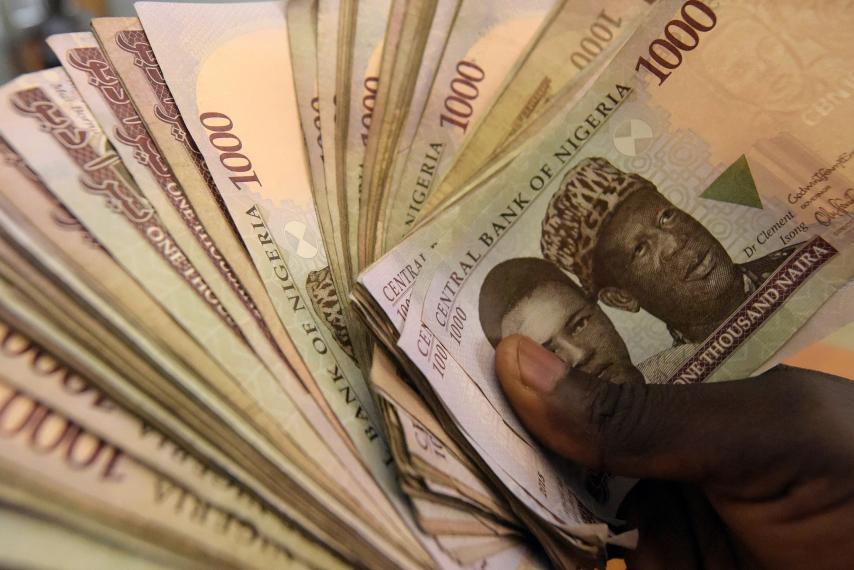- I&E FX Window May Stop Nigeria’s Demotion from MSCI Index
The newly introduced Investors’ and Exporters’ (I&E) foreign exchange window targeted at foreign portfolio investors could earn Nigeria reprieve from being demoted from the MSCI’s frontier markets index.
Nigeria’s currency peg between 2015 and 2016 led to the country’s delisting from two major indexes for emerging and frontier markets during the period.
U.S. investment bank, JP Morgan & Chase, in September 2015, first removed Nigeria from its Government Bond Index for Emerging Markets (GBI-EM), while Barclays announced its removal of Nigeria’s sovereign debt from its emerging markets local currency government bond benchmark, effective February 1, 2016.
According to a report by Reuters Tuesday, China, Argentina and Nigeria decisions loom for MSCI’s index review.
MSCI was slated to announce the results of its review Tuesday night. It was to hold conference calls with journalists at 2300 GMT and again at 0700 GMT Wednesday.
Nigeria is under review for possible demotion from the MSCI’s frontier markets index to “standalone” status.
This, according to the index provider, stems from “continuous deterioration of the market accessibility” after the introduction of restrictions on foreign currency trading in 2015.
Eleven Lagos-listed stocks on the Nigerian Stock Exchange (NSE) are currently on the MSCI Frontier Markets 100 index with a weighting of around seven per cent. That is the fourth largest after Kuwait, Argentina and Vietnam.
However, Nigeria might just escape a demotion from the MSCI frontier markets index due to the introduction of the I&E forex window by the Central Bank of Nigeria (CBN) last April, leading to a resurgence of investor confidence in the equities market.
“Investors are hoping the recent introduction of a new foreign exchange mechanism, aimed at international portfolio investors, will earn the country a reprieve. Nigeria’s index hit two-year highs last week,” the report added.
The CBN disclosed last week that cumulative transactions on the new I&E window had risen to $2.2 billion, from about $1 billion last month.
Also, CBN interventions in the I&E window have dwindled to below 30 per cent, enabling participants to freely trade currencies at a market determined rate.
Equities listed on the NSE rose to a new two-year high on Monday. The rally was lifted by gains in cement and banking shares.
The NSE-All share index climbed 0.96 per cent to cross 34,000 points on Monday, a level it last reached in May 2015.
Owing to the positive momentum on the Nigerian bourse, MSCI this month increased Nigeria’s weight on its frontier index to 7.9 per cent from 6.5 per cent, meaning that due to funds tracking, it would buy shares to replicate the new weight, analysts said.
MSCI was likely to open its emerging market benchmark to Chinese mainland-listed shares at its review Tuesday, but investors were also expecting news on other markets such as Argentina and Saudi Arabia.
MSCI had rejected China’s mainland-listed stocks – so-called A-shares – from inclusion on its main emerging markets index on three occasions, but they are expected to get the nod this time.
The index provider is also looking to include 169 A-shares in its $1.5 trillion emerging markets index and by default its $37 trillion All-Country World Index.
It trimmed the number of stocks from an original list of 448. The 169 stocks make up 5 per cent of all listed mainland China companies.
If successful, the stocks would officially join in a year’s time with a combined weighting of 0.5 per cent.
MSCI already includes some Chinese shares, but only those listed in Hong Kong or the U.S. They account for roughly 28 per cent of the EM index. The new A-shares would be on top of that.


 Billionaire Watch3 weeks ago
Billionaire Watch3 weeks ago
 Startups4 weeks ago
Startups4 weeks ago
 News4 weeks ago
News4 weeks ago
 News4 weeks ago
News4 weeks ago
 Bitcoin4 weeks ago
Bitcoin4 weeks ago
 Naira4 weeks ago
Naira4 weeks ago
 Forex3 weeks ago
Forex3 weeks ago
 Treasury Bills4 weeks ago
Treasury Bills4 weeks ago
























